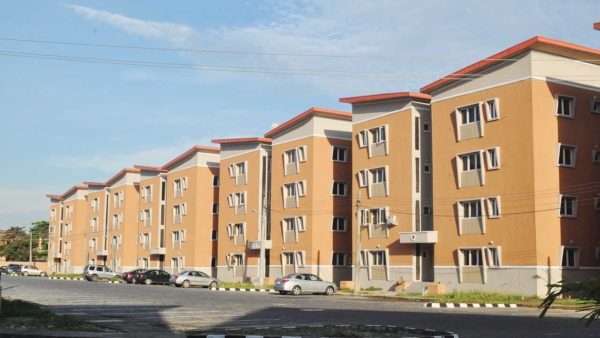
Currently, mortgage servicers face a potentially catastrophic loss in the wake of coronavirus, because of the economic lockdown and the stay at home directives by governments. Further upstream in the housing market, buyers and sellers are being affected.
While several government agencies in other parts of the world are providing loan forbearance that could delay housing payments for months due to COVID-19, the same cannot be said of Nigeria. Also, financial institutions that invest in bundled mortgage securities are putting in protections, since it would be mortgage servicers and lenders that lose.
In Nigeria, the Central Bank of Nigeria (CBN) recently announced a credit relief of $136.6million to businesses affected by the coronavirus pandemic but industrial watchers believed much still need to be done
Other interventions announced by the bank, include reduction of interest rates for the loan from nine per cent to five per cent retroactively to March 1.
But the umbrella body of Mortgage bankers in Nigeria, the Mortgage Banking Association of Nigeria (MBAN) want the country to take a cue from other countries to avert further default in mortgages.
MBAN President, Mr. Adeniyi Akinlusi, said COVID-19 cuts across economy and all industries and therefore requires proactive actions.
He commended Nigeria’s Central Bank’s credit relief of $136.6 million to businesses affected by the coronavirus pandemic.
According to him, many people who are taking mortgages are working in different sectors and COVID-19 affect their obligations. “This is the normal thing, we expect that if the people, who are employed lose their jobs, it will affect their obligations since many companies are not able to meet up because of the supply chain in China.
“Several countries have taken actions by asking them to take off one to two months to meet their obligations and the banks are not expected to take them as defaults.”
Akinlusi said since it is not something that is peculiar to Nigeria, “we can learn from what other countries are doing because the shock is global.
“If other countries are taking such steps to ensure that people do not default from their obligations, not only mortgages even companies that have obligations they do not default in bank credits, at least they should be given a minimum of two months to ensure that they are able to pay because they are not doing any business now and, if there is no business they cannot pay. I think, it is only wise for us to borrow a leaf from that.”
Specifically, the way to look at it is not to focus on mortgage default but to look at the entire effect on the economy as it affects Nigeria and other countries.
“If the economy is affected it will affect all sectors of the economy and some people not having cash flow , it can affect the payment of salaries which will result to mortgage defaults .
“What the United States is doing to plunging money into the economy to ensure that consumer demands are met, people can still buy goods, so that all those companies in the food sector do not sack their staff , the jobs will be there, if they do not sack their staff, the staff can pay their bills , to keep consumption going, apart from those people, there are also companies which government is binding their commercial papers so that they can have working capitals, to provide liquidity in the market.
“Beyond all of that, let us take a cue from what other countries are doing , you cannot give Nigerians money, they can extend mortgage repayment by two to three months.
“It can be rolled over so that people will know, that even if you don’t pay now, it will not be seen as default, this kinds of thing can be done so that we can move forward.
“Until this thing is over, what ever thing they are doing in other countries in terms of mortgage can be done , let us be proactive rather than waiting , because the whole world is going to recession , we need to pump money because if there is recession, people will not be able to pay their debts , nobody will want to go back to 2008 recession experience”, he added.
Akinlusi said with the mortgage rate still hovering between 15-18 per cent , the government needs to take a cue from other countries to arrest the mortgage default because if nothing is done, the pandemic will trigger recession, which will affect all sectors including the housing and mortgage markets.
Similarly, the Chairman, Royal Institution of Chartered Surveyors (RICS) (Nigeria) and Vice President, International Real Estate Federation (FIABCI), Nigeria chapter, Mr. Gbenga Ismail said government should suspend tax for this month by giving a tax credit in a way to give back.
According to him, the pandemic is triggering defaults in many countries where monthly contract is the norm. So those who have payments and have not been at work for weeks will definitely default.
“In Nigeria , we have few cases like that. However there are some businesses who thrive on daily sales, with closure of business they will not earn if they cannot earn then it will be difficult for them to pay salaries to their staff. Any of these paying mortgages will definitely be affected. The cycle is viscous and really impacting on the economy,” he added.
